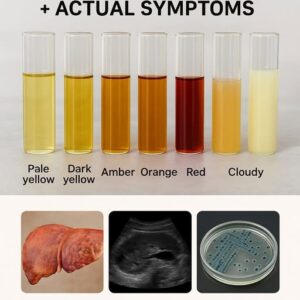Papillomaviruses are infectious agents that belong to the group of viruses known as “naked” (because they lack a lipid layer surrounding them), and are made up of a protein layer that envelops the DNA-like genetic material. These viruses affect certain species. The human papillomavirus is characterized by affecting the skin and mucous membranes in various parts of the human body. It is of medical importance due to its ability to cause certain types of neoplasia, but not all have this ability. Let’s take a look at them in detail.
Human papillomaviruses are divided into two large groups based on common genetic characteristics. First, we have low-risk viruses, which cause warts in various areas of the body and are rarely associated with malignant lesions. Secondly, there are high-risk or oncogenic viruses, capable of producing lesions that, if left untreated, can develop into cancer, in both men and women, including cervical cancer and cancer of other anatomical areas, genitals, and throat.
The lesions they produce can be classified according to their clinical characteristics into five types:
Common wart. Commonly caused by types 2 and 4 (low risk)
Flat wart. Caused by types 2, 3, and 5 (low risk)
Plantar wart. Caused by types 1, 2, 4, and 10
Genital wart (condyloma acuminata), usually caused by types 6 and 11, considered low risk, or one of the oncogenic types, including 16, 18, 31, 33, 35, and 39
Premalignant and malignant lesions and cancer. They are mainly caused by high-risk HPV types 16 and 18.
All good, but how can I contract the virus?

The oncogenic potential of these viruses depends primarily on the immune status of the affected person and the type of virus (high or low risk). However, all of them are primarily transmitted during sexual intercourse, although they can also be transmitted through direct contact between skin and mucous membranes when the skin breaks down.
According to the World Health Organization, approximately 80% of the population will come into contact with the virus at some point in their lives, primarily during s:exual interc:ourse. It is estimated that one million people worldwide contract a sexually transmitted disease every day; most of them are caused by HPV.
The use of barrier contraceptive methods, such as condoms, can help reduce the risk of contracting the infection. However, they do not guarantee effectiveness, because the virus can enter unprotected areas.
How do I know if I’m infected with the virus?
Most HPV infections don’t cause symptoms, and it’s usually the immune system itself that fights them off. HPV infections often take months or even years to appear, from the moment the infection occurs until the lesion appears; therefore, it’s almost impossible to know when it occurred.
Methods for detecting the virus focus on genetic and molecular analysis, using PCR (polymerase chain reaction) techniques. These methods confirm HPV infection based on a biological sample from the affected area. The FDA hasn’t approved any tests for detection in men, which significantly limits the diagnosis of this virus in the male population.
In women, a Pap smear can reveal changes in cervical tissue that may be associated with an HPV infection.
I understand, but if I’m infected, can I be cured?
There are no medical treatments to eliminate the virus from the body. However, it is possible to prevent infection with HPV vaccines. Currently, there are two HPV vaccines: a bivalent vaccine and a quadrivalent vaccine. Both vaccines are highly effective in preventing infection with HPV types 16 and 18, which cause approximately 70% of cervical cancers worldwide, as well as other types of cancer, including throat and genital cancers.
Treatments that destroy the affected tissue are the first choice, with surgical and ablative procedures reserved for cases where these fail. However, this does not guarantee that the lesions will not reappear in the future.
And if I am pregnant, can HPV affect my baby?
It is very rare for the virus to affect the baby during pregnancy. However, if a woman is infected with the virus, the baby can contract it during natural childbirth. For this reason, doctors resort to cesarean section in these cases to prevent infection of the fetus.
Remember that whenever an infection occurs during pregnancy, it’s best to always consult a specialist, who will help you resolve any questions you may have.
This information is provided for educational purposes only and is never intended to replace or substitute a professional medical diagnosis.





